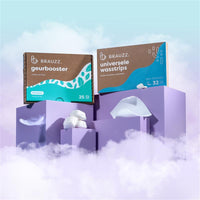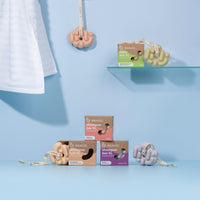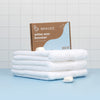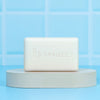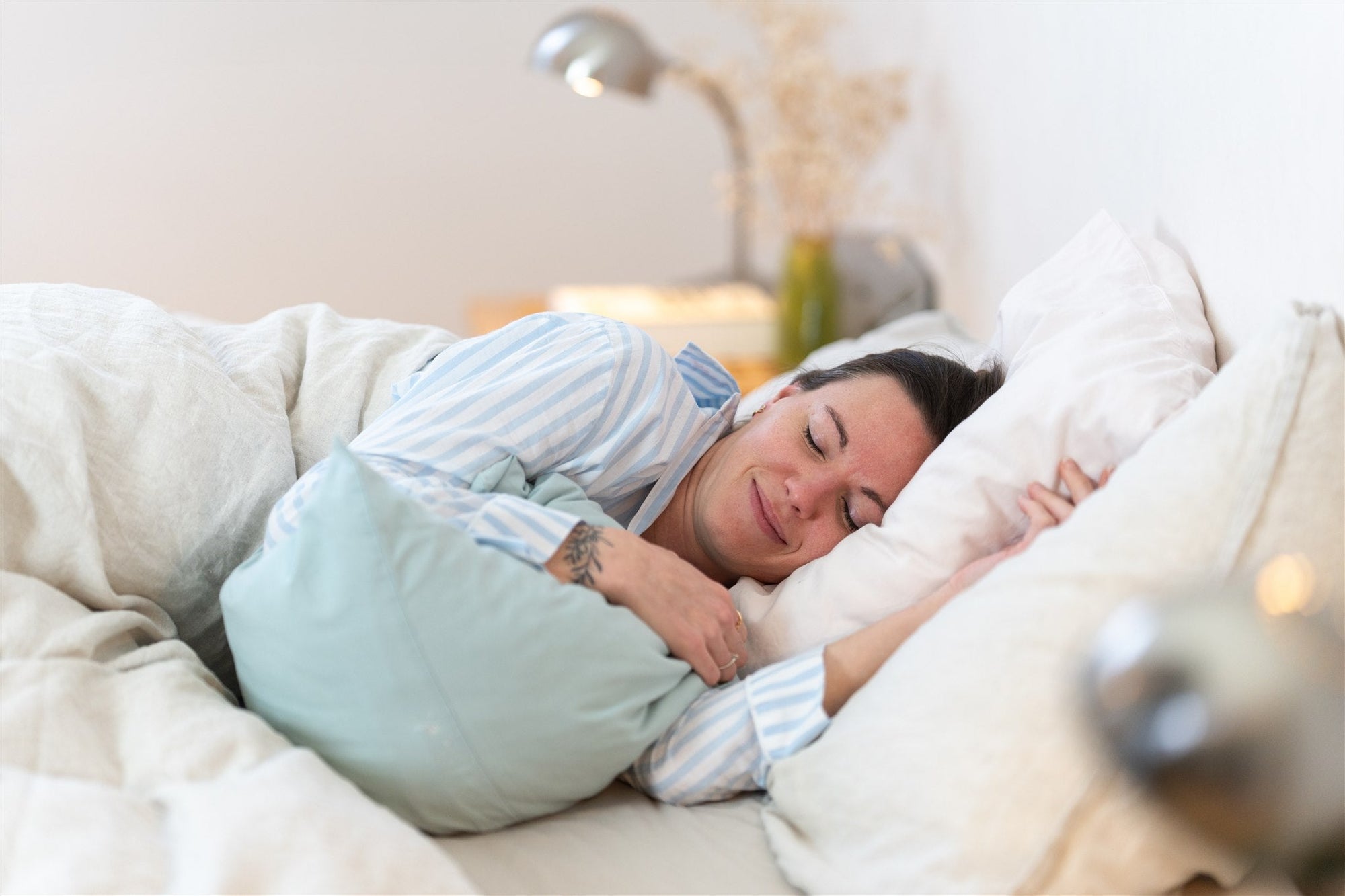Improve your sleep with scents, habits and relaxation - helpful tips
We sleep an average of a third of our lives. Yet over 1 in 3 people in Belgium and the Netherlands report having acute sleep problems. Stress, an irregular lifestyle and external stimuli such as noise or light can all contribute to poor sleep.
Fortunately, there are simple ways to improve your sleep quality - and scent plays a surprisingly large role in this. We take you through the science behind scent and sleep. We also share some handy tips & tricks to improve your sleep.
The science behind the influence of smell on sleep
Scent appears to be an underrated tool in our quest for a good night's sleep. Employing scent is an effective way to improve sleep quality. Indeed, scents such as lavender, chamomile and other warm scents such as "fresh linen" have a similar or even better effect on sleep than some sedatives and sleeping tablets
Lavender scent soothes
Lavender scent, for example, possesses properties that excite the olfactory nerves in the nose. This then has a calming and relaxing effect on the brain. Jasmine scent acts on the hypothalamus: a part of the limbic system that regulates our day and night rhythms and stimulates the need for sleep.
Tip: You can easily capitalize on this by choosing detergent with a lavender laundry scent.

Warm scents give comfort
In turn, warm scents such as vanilla or fresh linen evoke associations with comfort and coziness. This gives you a comforting, safe and relaxing feeling that promotes sleep.
Tip: subtly give your sleepwear the scent of "fresh linen" with a natural fragrance booster. This scent booster is based on natural clay and has a biodegradable perfume of fresh lissen which is not only innovative from an ecological point of view but also gives a reassuring and calming effect.
How your lifestyle affects your sleep
While scent is a powerful factor, your daily lifestyle also plays an important role in how well you sleep. Here are some factors and accompanying tips:
Coffee and caffeine
Caffeine is a stimulant that blocks adenosine - the substance that builds up sleep pressure in your brain. This makes you feel more alert, but this can also adversely affect your sleep quality. Research shows that caffeine can remain active in your body for up to 6 hours, meaning a cup of coffee in the late afternoon can disrupt your sleep.
A better alternative? After lunch, opt for decaffeinated teas such as rooibos or herbal infusions that promote relaxation.
Stress and breathing:
When you experience stress, your body produces more cortisol, a hormone that makes you alert but can significantly disrupt your sleep. Chronic stress can even cause you to sleep less deeply, which negatively affects your energy levels and mood the next day.
Fortunately, breathing exercises are a scientifically proven method to reduce stress and put your body into a restful state. A breathing tool helps here intuitively slow down your breathing and lower your heart rate, which helps you relax before bedtime.
Even just a deep sigh helps to quickly "reset" and calm down.

Movement and sleep:
Exercise is one of the best ways to improve your sleep quality. By exercising regularly, you help your body regulate its natural sleep-wake rhythm, leading to deeper and restorative sleep. But, the timing of your workout plays a crucial role.
A brisk walk or yoga session in the morning can boost your energy levels and reinforce your biological clock. However, heavy workouts such as strength training or intense cardio right before bedtime can increase your adrenaline, making it harder to fall asleep. Ideally, exercise at least 2-3 hours before bedtime to give your body enough time to recover and calm down.
General tips for sleeping better
A good night's sleep starts with the right foundation. Sometimes it's the little details that make the biggest difference. Here are some golden tips to optimize your sleep environment.
Breathable bedding
High-quality bedding does more than look beautiful. Materials that are breathable and temperature-regulating keep you comfortable, whether it's a warm summer night or a cold winter night. Choose soft sheets that help regulate your body temperature so you sleep soundly night after night.
Tip: Choose cotton or linen as natural materials for a luxurious and breathable sleep experience.

Choose a good mattress at your size
A comfortable mattress that properly supports your body is essential for healthy sleep. Research shows that a mattress tailored to your sleep needs can reduce back pain and significantly improve your sleep quality. Choose a mattress that supports your sleeping position and is made of materials that offer the right balance of firmness and comfort.
Tip: Visit a specialist to get personalized advice and find a mattress that fits you perfectly.
The effect of a weighted blanket and eye masks
Weighted blankets and eye masks are not just trendy, they have a proven calming effect on the nervous system. This is due to deep pressure stimulation (deep pressure stimulation), a technique that helps your body relax and promotes a sense of security.
Ergonomic pillow
A good pillow not only supports your head, but also keeps your neck and spine in the correct position. This prevents tension and helps you sleep more comfortably and longer. It is best to choose a pillow that is designed to optimally support your neck, regardless of your preferred sleeping position.
Tip: Test your pillow regularly. A pillow that is no longer resilient can imperceptibly disrupt your sleep.
Enter the Clean Dreams giveaway






